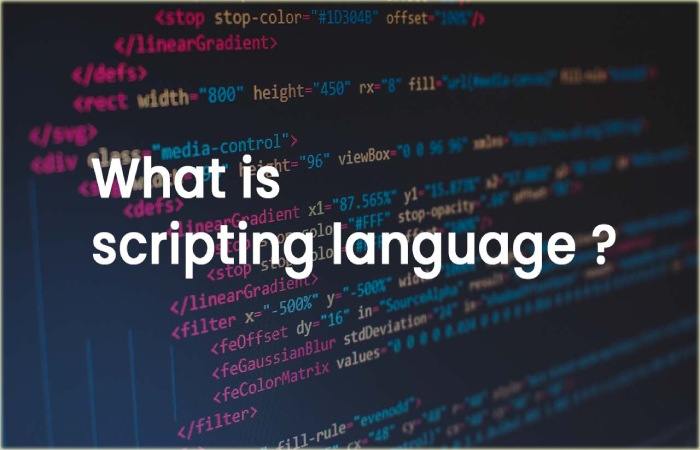Introduction
Scripting Languages – All scripting languages are programming languages. The scripting language is a language in which instructions are written for a run-time environment. They do now not require the compilation step and are instead interpreted. It brings new functions to packages and glue complex gadgets together. The scripting language is designed to integrate and speak with different programming languages.
What Is Scripting Languages?

A scripting language is a programming language this is interpret. It is translated into device code when the code is administered, as opposed to in advance. Scripting languages are also use for short scripts over complete computer applications. JavaScript, Python, and Ruby are examples of scripting languages.
You can be amazed to examine that more than seven hundred programming languages were invent at some point in the records of computers. That’s not almost as many as the hundreds of human languages we’ve got; however, studying any new language isn’t any small feat. In this article, we can see cowl what a scripting language is, which includes the definition of a scripting language, examples the popular scripting, and the pros and cons of their usage of them.
Definition of Scripting Languages
A scripting language (or script) is a sequence of commands that can be accomplish without compiling. While all script languages are programming languages, no longer all programming languages are scripting languages. PHP, Perl, and Python are not unusual examples of scripting language definitions.
Recognizing the distinction between interpreted vs. compile programming languages is vital to increase your coding expertise. However, superior hardware and coding practices are beginning to make the distinction somewhat obsolete. Overall, It is use to offer guidelines to software programs, like the ones within websites.
Features Of Scripting Languages
The characteristics are as below:
Bash: Bash is a scripting language to work in the Linux interface. Applying bash to create scripts is much less challenging than in different languages. In addition, it defines the tools to use and code inside the command line, creates useful reusable scripts, and conserves documentation for other humans to paint with.
Node JS: It is a framework for writing network programs using JavaScript. Corporate customers of Node.Js include IBM, LinkedIn, Microsoft, Netflix, PayPal, and Yahoo for actual-time net programs.
Ruby: There are loads of motives for learning Ruby programming language. Ruby’s flexibility has allowed developers to create a modern software program. It is a scripting language that is excellent for web improvement.
Python: It is simple, accessible, and open source. It supports manner-orientated programming and object-orientated software design. Python is a silent language with dynamic semantics, and significant traces of code are script and is currently the maximum hype language amongst builders.
Perl: A scripting language with revolutionary functions to make it unique and famous. Found on all windows and Linux servers. In addition, it allows textual content manipulation duties. High visitors websites that use Perl notably consist of priceline and IMDB.
Advantages Of Scripting Languages

Easy to learn: The user can quickly learn to program in it, no extensive knowledge of web technology is require. Hence, the Hard Drive Technology is required for programming the script languages. While using the high definition of hard drive will helps to create the infinite programming languages.
Fast processing is very efficient, with limited data structures and variables.
Interactivity: Helps to add display interfaces and combinations in web pages. Modern websites require the use of it. To create advanced web pages, fascinating visual descriptions including foreground and background colors, etc.
Functionality: Different libraries are part of different scripting languages. They help build new applications in web browsers and are different from common programming languages.
Application Of Scripting Languages
these are use in many areas:
- Scripting languages are use in web applications. It is use both on the server side and on the client side. Server-side scripting languages are: JavaScript, PHP, Perl, etc., and client-side languages are: Java-Script, AJAX, jQuery and etc
- Scripting languages are also use in system administration, for example, shell scripts, Perl, Python, etc.
- It is use in gaming and multimedia applications.
- It is use to create plugins and extensions for existing applications.
Conclusion
In my content, I want to describe scripting language is a programming language this is interpret. It is translate into device code when the code is administer, as opposed to in advance. Its are also use for short scripts over complete computer applications. JavaScript, Python, and Ruby are examples of script languages.
Also Read: Object-oriented programming languages.



